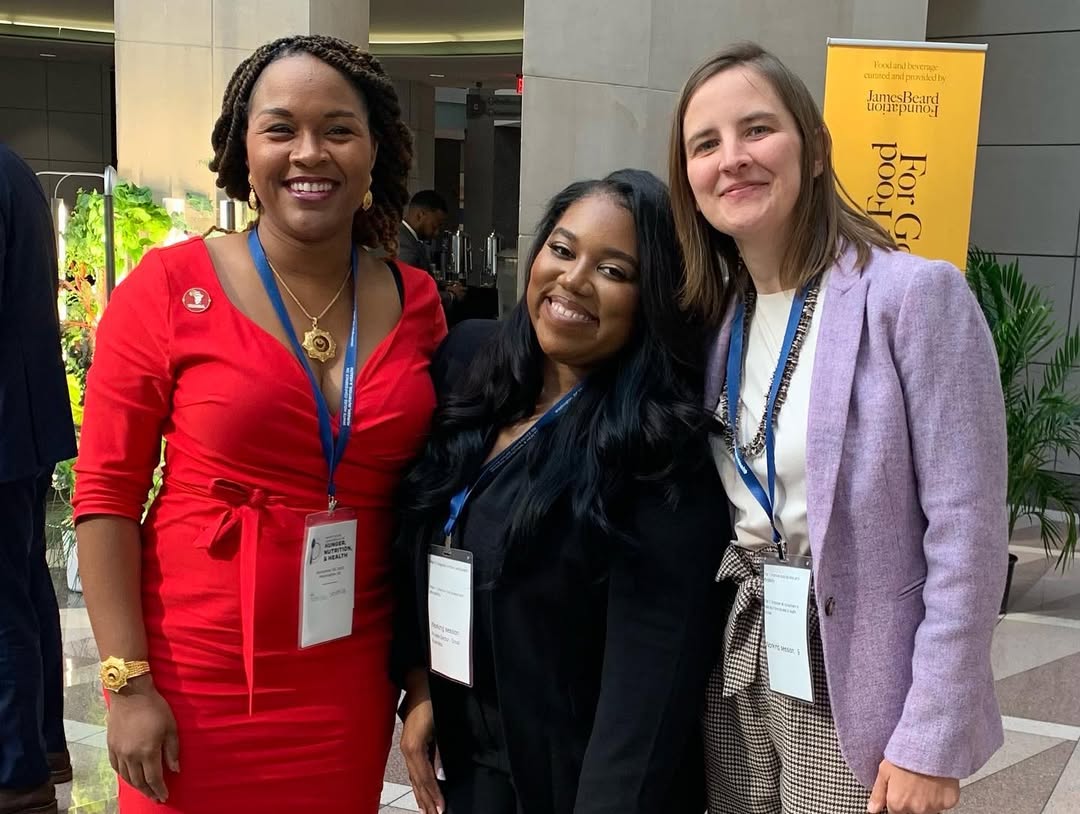At our Civil Eats virtual salon, food mutual aid organizers discussed the vital role of community networks in meeting food needs—and much more.

At our Civil Eats virtual salon, food mutual aid organizers discussed the vital role of community networks in meeting food needs—and much more.
March 20, 2025

Civil Eats Editorial Director Margo True, Feed Durham founder Katina Parker, and Yasmin Ruiz, food justice co-organizer at Little Village Environmental Justice Organization.
Last week, we welcomed Civil Eats members and the public to a thought-provoking and inspiring discussion on how to create and sustain food mutual aid. Our salons are usually for members only, but we felt that this inherently generous topic deserved to be shared with all interested listeners, particularly at a time when many of us might be supporting mutual aid in our communities.
Expand your understanding of food systems as a Civil Eats member. Enjoy unlimited access to our groundbreaking reporting, engage with experts, and connect with a community of changemakers.
Already a member?
Login
Who Spoke: The event was kicked off by Civil Eats Membership Manager Kalisha Bass, with a welcome from Executive Director Naomi Starkman.
Editorial Director Margo True moderated our conversation with Katina Parker, a filmmaker and founder of Feed Durham in North Carolina, and Yasmin Ruiz, food justice co-organizer at Little Village Environmental Justice Organization (LVEJO) in Chicago.
Feed Durham is a multifaceted program that feeds hundreds of people at a time and includes produce giveaways, clothing distributions, and repair clinics. LVEJO was founded 30 years ago to fight environmental injustice in the neighborhood, has now expanded into several different food mutual aid projects.
The Overview: The conversation centered around what true community care looks like, based not on charity but on reciprocity, and how people can care for one another during difficult times. The audience included people from across the U.S., many of whom work on farms, garden programs, and food access issues. They contributed a lively stream of chats during the discussion.
Many audience members were already working to feed people in their communities, and a few were encouraged by Parker to start new local projects such as community gardens to feed more people in need. By the time the salon ended, there was a palpable energy for change in the audience, with listeners vowing to connect with one another and the speakers after the session.
Become a member today for invitations to future salons—along with other benefits that come with being a Civil Eats member.
What Is Food Mutual Aid?
Tips for Sustaining a Food Mutual Aid Community
Turning Challenges Into Opportunities
Sources of Inspiration and Strength
Expanding Mutual Aid

July 30, 2025
From Oklahoma to D.C., a food activist works to ensure that communities can protect their food systems and their future.
Like the story?
Join the conversation.